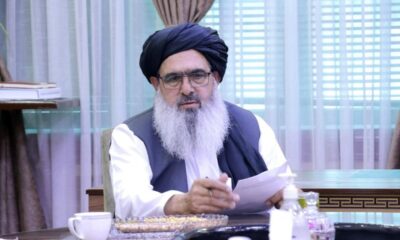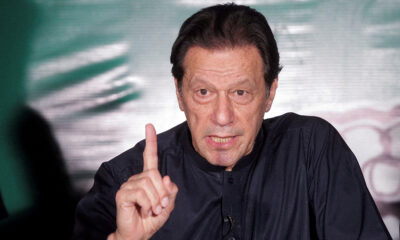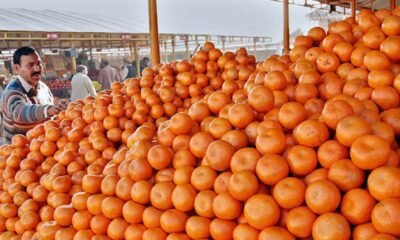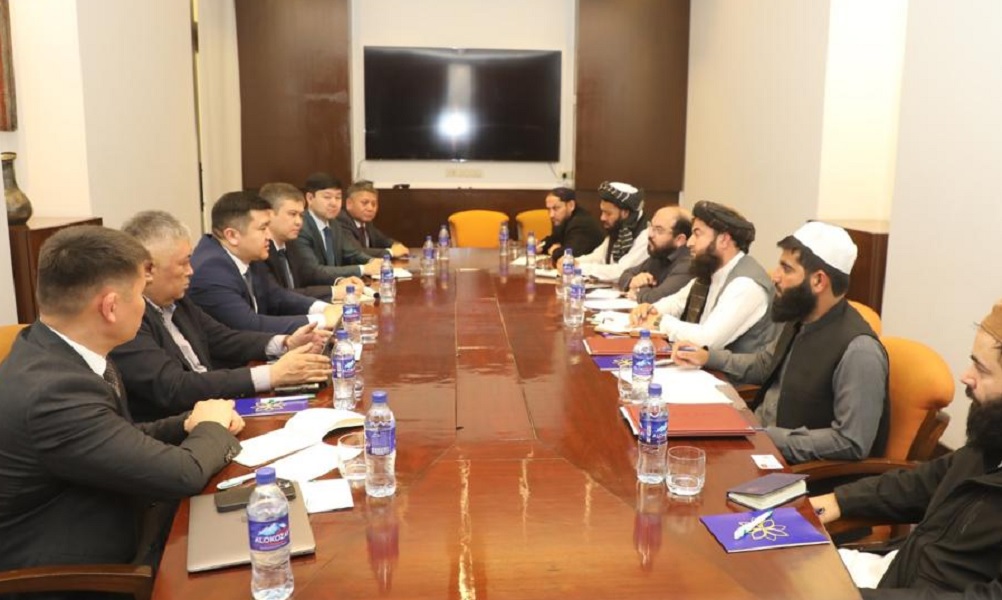Business
No relief yet for Pakistan as FATF keeps it on global grey list

The Financial Action Task Force (FATF) on Friday announced it would keep Pakistan on the grey list until at least February next year.
Speaking at a virtual press conference in Paris on Friday the anti-money laundering/terror financing watchdog’s president Marcus Pleyer said there were still conditions Pakistan needs to comply with before they can be removed from the grey list.
“Pakistan must comply with the remaining six items, then the FATF will send its onsite team to verify progress on the ground. After completion of this process, the FATF will consider Pakistan to be excluded from the list of jurisdictions with increased risk of terror financing that is called the grey list.”
Pleyer said although Pakistan has made progress in terms of carrying out reforms and implemented measures such as imposing sanctions against those financing terrorism, more still needed to be done.
The FATF plenary removed Iceland and Magnolia from the grey list. North Korea and Iran will remain on the blacklist.
Meanwhile, Pakistan’s Federal Minister for Industries Hammad Azhar said on Twitter: “FATF acknowledges that any blacklisting is off the table now. Pak has achieved impressive progress on its FATF action plan. 21 out of 27 action items now stand cleared. Remaining 6 rated as partially complete. Within a year, we progressed from 5/27 to 21/27 completed items.”
According to a statement issued by FATF Pakistan’s continued political commitment has led to progress in a number of areas including taking action to identify and sanction illegal MVTS, implementing cross-border currency and controls, improving international cooperation in terrorist financing cases and applying sanctions where necessary, among others.
The statement noted that Pakistan should continue to work on implementing its action plan to address its strategic deficiencies.
One area FATF said Pakistan needs to work on is to demonstrate effective implementation of targeted financial sanctions against all 1,267 and 1,373 designated terrorists and those acting for or on their behalf.
However, the FATF said it “takes note of the significant progress made on a number of action plan items. To date, Pakistan has made progress across all action plan items and has now largely addressed 21 of the 27 action items. As all action plan deadlines have expired, the FATF strongly urges Pakistan to swiftly complete its full action plan by February 2021.”
Business
Pakistan’s kinno exports falter as tensions with Afghanistan continue
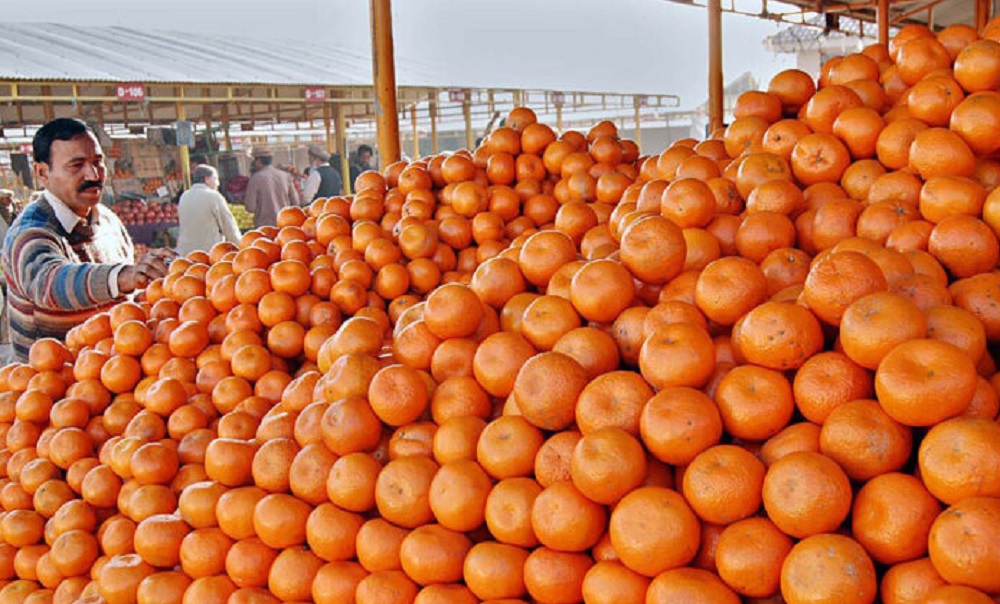
Pakistan’s kinno exports remain far below potential as regional tensions, high freight costs and weak government support continue to choke the citrus trade.
Despite being a leading global citrus producer, Pakistan is expected to export just 400,000–450,000 tonnes of kinno in the 2025–26 season, compared with an estimated capacity of 700,000–800,000 tonnes.
Exports in 2024–25 stood at around 350,000–400,000 tonnes, mainly to Russia, the UAE, Saudi Arabia, Afghanistan, Indonesia and Central Asia. While better fruit quality this season has raised hopes, persistent crossing disruptions—especially with Afghanistan—and transport bottlenecks have offset gains.
Growers say prices have collapsed sharply, forcing panic sales. Rates for large kinno have fallen from over Rs120 per kg early in the season to as low as Rs75, while smaller fruit is selling for Rs35–40 per kg amid weak demand.
Industry leaders warn the crisis is crippling processing units and jobs. More than 100 factories reportedly failed to open this season, with dozens more shutting down as exports stall. Cold storages in Sargodha are nearly full, putting fruit worth millions of dollars at risk of spoilage, while growers fear losses of up to Rs10 billion.
Exporters are urging the government to urgently resolve issues, subsidise logistics, and help access alternative markets, warning that prolonged inaction could devastate farmers, workers and the wider economy.
Business
Pezeshkian pledges to facilitate Iran-Afghanistan trade

Iranian President Masoud Pezeshkian has said that Tehran will facilitate trade and economic exchanges with Afghanistan, including easing procedures at customs and local marketplaces.
He made the remarks during a televised interview following his visit to South Khorasan province, which shares a border with Afghanistan.
Pezeshkian, in a separate event addressing local business leaders, highlighted the province’s strategic advantages, citing its rich mineral resources, proximity to neighboring countries such as Afghanistan and Pakistan, and access to the ocean via the Chabahar port. He described the region as “a golden opportunity not found everywhere,” emphasizing its potential for economic growth and cross-border commerce.
Business
Afghanistan-Kazakhstan banking ties discussed in Kabul meeting
-

 International Sports5 days ago
International Sports5 days agoILT20: Abu Dhabi Knight Riders end Desert Vipers’ unbeaten run in dramatic one-run win
-

 Latest News3 days ago
Latest News3 days agoAfghan border forces prevent illegal entry of hundreds into Iran
-

 Latest News2 days ago
Latest News2 days agoPakistan summons Afghan diplomat over deadly attack in North Waziristan
-

 Business5 days ago
Business5 days agoMahirood Customs leads Iran’s exports to Afghanistan
-
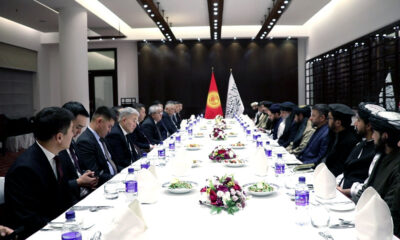
 Latest News5 days ago
Latest News5 days agoAfghanistan, Kyrgyzstan discuss expanding trade and economic cooperation
-

 Latest News3 days ago
Latest News3 days agoJapan allocates nearly $20 million in humanitarian aid for Afghanistan
-

 Latest News2 days ago
Latest News2 days agoKarzai urges reopening of girls’ schools and universities for Afghanistan’s bright future
-

 Health4 days ago
Health4 days agoAfghanistan seeks India’s support in standardizing traditional medicine


